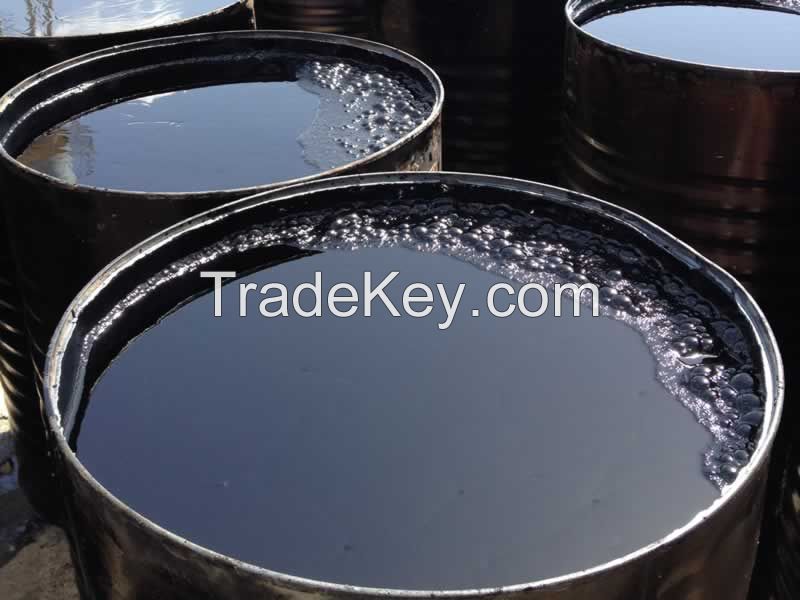详情
Bitumen is the heaviest, thickest form of PETROLEUM. Bitumen does
not flow freely: it is heavier than water and more viscous than
molasses. Most of the hydrocarbons in bitumen are heavier than
pentane, and about half are very heavy molecules with a boiling
point over **5° C. The light fractions are high in naphthenes (used
in making gasoline and PETROCHEMICALS); the heavy fractions are
high in asphaltenes (used in making asphalt). Bitumen also contains
up to 5% sulphur by weight, and small amounts of oxygen, heavy
metals and other contaminants. Most deposits contain mixtures of
bitumen, sand, water, small amounts of heavy metals and other
contaminants. In its natural state, bitumen is suitable only for
paving roads. Compared to conventional crude oil, bitumen contains
too much carbon and too little hydrogen
bitumen Mixture of tarlike hydrocarbons derived from petroleum.
Black or brown, it varies from viscous to solid; the solid form is
usually called asphalt. Bitumen occurs in nearly every part of the
world and in nearly the whole range of geologic strata. The term
may also refer to synthetic hydrocarbon compounds Any of various
flammable mixtures of hydrocarbons and other substances, occurring
naturally or obtained by distillation from coal or petroleum, that
are a component of asphalt and tar and are used for surfacing roads
and for waterproofing.
Bitumen is a black, oily, viscous material that is a
naturally-occurring organic byproduct of decomposed organic
materials. Also known as asphalt or tar, bitumen was mixed with
other materials throughout prehistory and throughout the world for
use as a sealant, adhesive, building mortar, incense, and
decorative application on pots, buildings, or human skin. The
material was also useful in waterproofing canoes and other water
transport. It is also flammable Mixture of tarlike hydrocarbons
derived from petroleum. Black or brown, it varies from viscous to
solid; the solid form is usually called asphalt. Bitumen occurs in
nearly every part of the world and in nearly the whole range of
geologic strata.
The term may also refer to synthetic hydrocarbon compounds Any of
various flammable mixtures of hydrocarbons and other substances,
occurring naturally or obtained by distillation from coal or
petroleum, that are a component of asphalt and tar and are used for
surfacing roads and for waterproofing.
